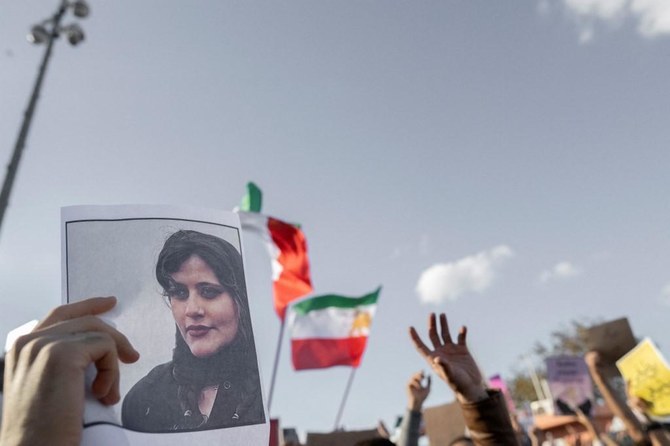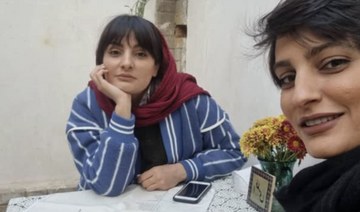DUBAI: A Revolutionary Court in Iran on Tuesday began the trial of a female journalist behind closed doors on charges linked to her coverage of a Kurdish-Iranian woman whose death in custody last year sparked months of unrest, her husband said on Twitter.
Mahsa Amini’s death while held by the morality police for allegedly violating Iran’s strict dress code unleashed a wave of mass anti-government protests for months, posing one of the boldest challenges to the country’s clerical leaders in decades.
A photo taken by Niloofar Hamedi for the pro-reform Sharq daily showing Amini’s parents hugging each other in a Tehran hospital where their daughter was lying in a coma was the first sign to the world that all was not well with 22-year-old Amini.
Tuesday’s trial session “ended in less than two hours while her lawyers did not get a chance to defend her and her family members were not allowed to attend the court,” Hamedi’s husband, Mohammad Hossein Ajorlou, said on Twitter.
“She denied all the charges against her and emphasized that she had performed her duty as a journalist based on the law.”
Hamedi, along with another female journalist, Elaheh Mohammadi, who went on trial on Monday, face several charges including “colluding with hostile powers” for their coverage of Amini’s death.
Iran’s intelligence ministry in October accused Mohammadi and Hamedi, both imprisoned for over eight months, of being CIA foreign agents.
Iran’s clerical rulers have blamed the protests on an array of enemies, including the United States, aimed at destabilising the Islamic Republic.
Iran starts trial of female journalist who covered Amini’s death
Short Url
https://arab.news/z3xdr
Iran starts trial of female journalist who covered Amini’s death

- Hamedi, along with another female journalist, Elaheh Mohammadi, who went on trial on Monday, face several charges including "colluding with hostile powers"
- Iran's intelligence ministry in October accused Mohammadi and Hamedi, both imprisoned for over eight months, of being CIA foreign agents













